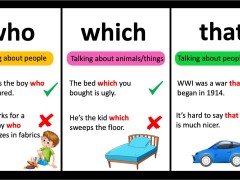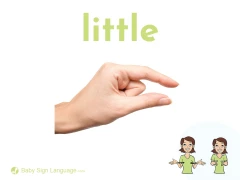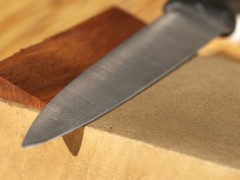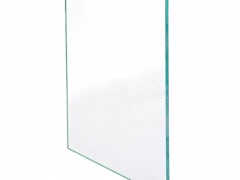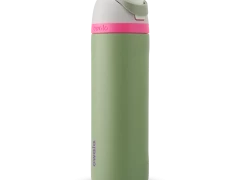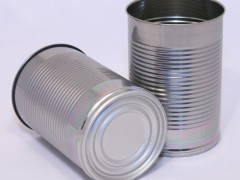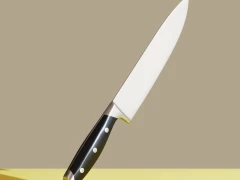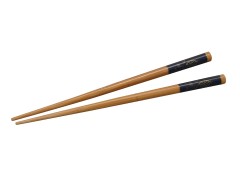give [ɡiv] v. 给
【派】giving 礼物 given 赠予的
【搭】give back 还给
give sth. to sb. 给某人某物
give up 放弃 give in 屈服
* * *
A: Can you give me some small change?
B: Sure. How much do you want?
A:可以给我一些零钱吗?
B:好的,你要多少?
* * *
one [wʌn] pron. 一个
【扩】once 一次
【搭】one by one 一个接一个
one in five 五分之一
one...the other...一个……另一个
* * *
A: Did you see Mike?
B: No, we quarreled bitterly one week ago and I have not seen him since then.
A:你看见迈克了吗?
B:没有,我们一星期前大吵了一次,从那以后我就再也没有和他见过面。
* * *
which [witʃ] pron. 哪一个
【派】whichever 无论哪个
【搭】which one 哪个
* * *
A: I'm fond of playing chess, and I'm very keen on playing cards, too.
B: Which is easier to learn?
A:我喜欢下棋,也喜欢打牌。
B:哪个更容易学?
Lesson 22 Give me/him/her/us/them a... 给我/他/她/我们/他们一……Which one? 哪一……?
empty [ˈempti] adj. 空的
【搭】be empty of 缺乏
* * *
A: May I take this empty plate away?
B: Yes, do please.
A:我能把这个空盘子拿开吗?
B:当然可以,请吧。
* * *
full [ful] adj. 满的
【派】fully 完全地 fullness 丰富
【搭】full load 满载 full speed 全速
full moon 满月
* * *
A: Can we start our tour now?
B: Yes, the car has a full tank now.
A:我们现在能开始我们的旅行了吗?
B:可以了。车子的油箱现在是满的。
* * *
large [lɑːdʒ] adj. 大的
【派】largely 大量地
【扩】mega 巨大的
* * *
A: Well, here's your room, miss.
B: Thank you. Oh, what a nice, large room with a bird's view over the city!
A:这就是您的房间,小姐。
B:谢谢。啊,这真是一间宽敞而且能俯瞰全城的好房间!
* * *
little [ˈlitl] adj. 小的
【搭】little by little 渐渐地
quite a little 大量
* * *
A: The little dog is so cute.
B: Yes, but I like that kitten more.
A:这只小狗真可爱。
B:是的,但我更喜欢那只小猫。
* * *
sharp [ʃɑːp] adj. 尖的,锋利的
small [smɔːl] adj. 小的
* * *
A: I'm terrible at chopping vegetables. I always seem to chop them into pieces that are either too big or too small.
B: I'm good at it. Leave the work to me.
A:我切菜的手艺很差,总是把它们切得要不就太大,要不就太小。
B:我很擅长这项工作,把这事留给我吧。
* * *
blunt [blʌnt] adj. 钝的
box [bɔks] n. 盒子,箱子
* * *
A: Put it in that box.
B: I'm afraid the box is not big enough.
A:把它放进那个盒子里去。
B:我怕那个盒子不够大啊。
* * *
glass [ɡlɑːs] n. 杯子
【派】glasses 眼镜
【扩】stoup 大杯子 tumbler 平底玻璃杯
【搭】a glass of 一杯
* * *
A: Would you like something to drink?
B: Yes, give me a glass of water, please.
A:要来点儿喝的吗?
B:要,请给我来杯水。
* * *
cup [kʌp] n. 茶杯
【派】cupboard 食橱
【搭】coffee cup 咖啡杯
* * *
A: What would you like to drink today?
B: A cup of black tea, please.
A:今天要喝点儿什么?
B:给我来杯红茶吧。
* * *
bottle [ˈbɔtl] n. 瓶子
【派】bottleneck 瓶颈
【扩】pitcher 水罐 flask 小水瓶
【搭】a bottle of juice 一瓶果汁
* * *
A: How many bottles are there under the desk?
B: Why don't you check it yourself?
A:桌子底下有几个瓶子啊?
B:你为什么不自己数数呢?
* * *
tin [tin] n. 罐头
knife [naif] n. 刀子
【派】knifer 搅土机
【扩】blade 刀刃
【搭】bread knife 面包刀
kitchen knife 厨刀
* * *
A: My finger is cut by a knife.
B: You are so careless.
A:我的手指被刀割破了。
B:你太不小心了。
* * *
fork [fɔːk] n. 叉子
【派】forklift 叉车 forkful 一叉的量
【搭】the fork of the road 路的分叉
* * *
A: Do you know how to use the fork?
B: No. Can you teach me?
A:你知道怎么用叉子吗?
B:不知道,你能教教我吗?
* * *
spoon [spuːn] n. 勺子
【派】spoonful 一匙
【扩】ladle 长柄勺
【搭】soup spoon 汤勺
* * *
A: How can I use the salt in thesaltcellar?
B: If there is no spoon in a saltcellar, use the tip of a clean knife.
A:我怎样用盐罐里的盐?
B:如果盐罐里没有勺子,那就用干净的刀尖。
verb [vt. 及物动词]给,交给;赠送,赠与,送给;(为某人)提供,供给,供应;捐助,捐赠,捐款;(为购买某物或做某事而)支付,付款;将(时间、精力等)用于;使受惩罚;使染上(疾病等);举办(娱乐活动或聚会);表演,公开进行;做(动作);使产生(某种感觉);给(某人)打(电话);给…评定(等级) - You use give to say that a person does something for another person. For example, if you give someone a lift, you take them somewhere in your car.
noun [抽象名词]伸展性,弹性;适应(或顺应)能力,灵活性 - If you give someone something that you are holding or that is near you, you pass it to them, so that they are then holding it.
numeral [基数词]一;一个;一岁;一点钟 - One minus one is zero.
pronoun [人称代词]一个人;任何人,人们(表泛指);那个人;(特指的)那种人 - If one looks at the bigger picture, a lot of positive things are happening.
adjective [原级]唯一的;一的 - They had three sons and one daughter.
noun [抽象名词]一;一美元纸币 - They had three sons and one daughter.
pronoun [指示代词]哪一个,哪一些 - "You go down that passageway over there."—"Which one?" “
adjective [原级]哪一个,哪一些;无论哪个;(进一步提供有关某事物的信息)那个,那些 - They all look so alike to me that I'm never sure which is which.
pronoun [指示代词]det. 哪一个,哪一些;(指明事物)……的那个,……的那些;(进一步提供有关某事物的信息)那个,那些 - Which is their house?
adjective [原级]空的;空洞的,无意义的;空虚的;无知的,愚蠢的;无用的,徒劳的 - The room was bare and empty.
verb [vt. 及物动词]清空;变空;流入;使失去 - I emptied the ashtray.
noun [具体名词]空容器 - After breakfast we'll take the empties down in the sack.
adjective [原级]满的,满是…的;饱的;最大量的;完整的,详尽的;足足的;圆润的,浓郁的;充实的;正式的;宽松的;丰满的;(书面装订材料)用于全书面装订的;(头发)过肩的,披肩的 - If a place or thing is full of things or people, it contains a large number of them.
adverb [程度副词]充分地,完全地;恰好,直接地;非常,极其 - You use full to emphasize the force or directness with which someone or something is hit or looked at.
verb [vt. 及物动词]装满,使充满;把(织物)打多褶(或大褶)以使(衣服)宽松;<美>(月)变圆,(潮)涨;使(布料)缩呢(或缩绒、毡化) - (of cloth, yarn, etc) to become or to make (cloth, yarn, etc) heavier and more compact during manufacture through shrinking and beating or pressing
adjective [原级]尺寸、范围、容量)大的;广泛的,重要的;身材高大的;(公司或组织)大规模的 - A large amount or number of people or things is more than the average amount or number.
noun [抽象名词]大号,同类中最大者 - In the largest room about a dozen children and seven adults are sitting on the carpet.
adverb [程度副词]夸大地;大大地 - I think the chances of getting reforms accepted by the community at large remain extremely remote.
adjective [原级]小的,比较小的;用于强调对某人或某物的意见;年幼的;短暂的,近的;微不足道的;可爱的,可怜的 - We sat around a little table, eating and drinking wine.
adverb [程度副词]一点儿,少得几乎没有;少量的,一些;极少,轻微;几乎不;短时间地,一会儿地 - On their way back to Marseille they spoke very little.
pronoun [指示代词]少许 - They get paid for it. Not much. Just a little.
adjective [原级]det. 一点儿,少得几乎没有;少量的,一些 - I had little money and little free time.
adjective [原级]锋利的;尖的;(沙子,沙砾)由尖颗粒组成的;急转弯的;急剧的,骤然的(变化);清晰的,鲜明的;剧烈的,强烈的;(语言)尖锐的,尖刻的;刺耳的;聪明的,敏锐的;(味道)浓烈的,辛辣的;吸引人的,时髦的;(风或霜)刺骨的;狡诈的;升半音的;音调偏高的 - You can describe a shape or an object as sharp if part of it or one end of it comes to a point or forms an angle.
adverb [时间副词]正点,准时;急转向地;音调偏高地;突然地,急剧地 - Sharp is used after stating a particular time to show that something happens at exactly the time stated. (…
noun [抽象名词](音符的)升半音;升半音号(#);缝衣长针;锐利的东西(如针、注射器等)(sharps);<非正式>骗子 - Sharp is used after a letter representing a musical note to show that the note should be played or sung half a tone higher. Sharp is often represented by the symbol ♯.
adjective [原级]钝的,不锋利的;直言不讳的,说话生硬的 - She is blunt about her personal life.
verb [vt. 及物动词]减弱;使不锋利,使变钝 - The constant repetition of violence has blunted the human response to it.
adjective [原级]小型的;(数量)少的;小规模的;无关紧要的,不重要的;幼小的,年幼的;(字母)小写的;(嗓音)微弱的,轻柔的;一般的,非极端的;出丑的,羞愧的 - She is small for her age.
noun [抽象名词]<英,非正式>小件衣服(尤指内衣)(smalls);后腰(the small of the/sb.'s back);<西印度>小费,小额礼金(smalls);小件物品;矮小的人 - Place your hands on the small of your back and breathe in.
adjective [原级](尺寸、数量、规模或年龄)大的;重大的,严重的;有影响力的;糟糕的;有雄心的;受欢迎的;热衷于…的;程度深的,效果好的;大方的,大度的;生僻的,晦涩的;大写的 - Australia's a big country.
adverb [程度副词]大大,给人印象深地;夸口地;大量地 - The crowd included a big contingent from Cleveland.
noun [具体名词]盒,箱,匣;包厢,专席;小亭,岗亭;方框,方格;邮箱;区,特定区域;<英,非正式> 电视(the box);<非正式> 棺材;一巴掌,一拳;下体护身;黄杨;<非正式>电脑外壳;机器护箱;电脑屏幕上的用户输入区(或信息显示区);(英足)罚球区;(棒球)击球手所在区;乡间小屋 - You can use box to refer to a box and its contents, or to the contents only.
verb [vt. 及物动词]把…装箱;(拳击运动中)击打;混杂,群居 - To box means to fight someone according to the rules of boxing.
noun [具体名词]玻璃;玻璃杯;一杯之量;玻璃器皿,玻璃制品;玻璃保护面;眼镜,透镜 - Glass contracts as it cools.
noun [具体名词]杯子;一杯(的量);杯(烹饪的计量单位),量杯(金属或塑料量器);优胜杯,奖杯;杯状物;(胸罩的)罩杯;(含酒精的)混合饮料;<美>(高尔夫球的)球洞;<美>(男子运动时穿的)护裆 - Gradually add 1 cup of milk, stirring until the liquid is absorbed.
verb [vt. 及物动词](用手)做成杯状;窝起手掌托住;<旧>为…拔火罐(或做吸杯治疗) - He cupped his hands around his mouth and called out for Diane.
noun [具体名词]瓶子;一瓶(的量);酒;奶瓶,乳饮品;<英,非正式>信心,勇气;<非正式>酒癖,嗜酒 - There were two empty beer bottles on the table.
verb [vt. 及物动词]装瓶;<非正式>用玻璃瓶砸;<英,非正式>丧失勇气,泄气 - This is a large truck which has equipment to automatically bottle the wine.
noun [具体名词]锡(一种化学元素,符号为 Sn);<英>罐,罐头盒;(用于储存糕点或饼干的)有盖金属盒,金属食品盒;<英>(盛涂料、胶水等的)马口铁罐,白铁桶;<英>烤模,烤盘;镀锡铁皮,马口铁(tinplate 的简称);<英>长方形面包 - Store the biscuits in an airtight tin.
adjective [原级]锡制的 - Bronze is an alloy of copper and tin.
verb [vt. 及物动词]在…上镀锡(或包锡) - This tin can hold that one.
noun [专属名词]餐刀;刀子,刀具,匕首;手术刀 - He was wielding a large knife.
verb [vi. 不及物动词]用刀伤害(或杀害);如刀般划过 - Dawson takes revenge on the man by knifing him to death.
noun [具体名词]餐叉,叉子;耙,叉;岔路,支流;叉状部件,叉状物;(棋)一捉两,一捉多 - We arrived at a fork in the road.
verb [vi. 不及物动词](道路、河流等)分岔,岔开;(用餐叉)叉起;耙地,叉掘;(不情愿地)大把花钱,付出;走岔路中的一条;用一个棋子同时进攻(两个棋子) - Beyond the village the road forked.
noun [专属名词]【名】 (Fork)(英、德)福克(人名) - Fork poked at the spaghetti with a fork.
noun [专属名词]筷子(chopstick 的复数) - He buys some Chinese chopsticks.


